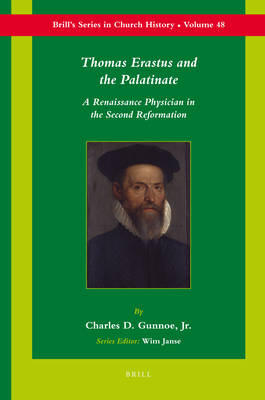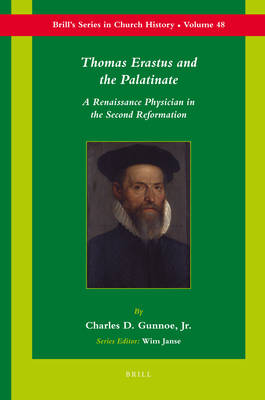
- Afhalen na 1 uur in een winkel met voorraad
- Gratis thuislevering in België vanaf € 30
- Ruim aanbod met 7 miljoen producten
- Afhalen na 1 uur in een winkel met voorraad
- Gratis thuislevering in België vanaf € 30
- Ruim aanbod met 7 miljoen producten
Zoeken
€ 276,45
+ 552 punten
Omschrijving
This study is the first monograph to attempt a synthetic treatment of the career of Thomas Erastus (1524-1583). Erastus was a central player in the conversion of the Electoral Palatinate to Reformed Christianity in the early 1560s and a co-author of the Heidelberg Catechism. In the church discipline controversy of the 1560s and 1570s, Erastus opposed the Calvinist effort to institute a consistory of elders with independent authority over excommunication. Erastus's defeat in this controversy, and the ensuing Antitrinitarian affair, proved the watershed of his career. He turned to the refutation of Paracelsus and a debate with Johann Weyer on the punishment of witches. The epilogue tracks Erastus's later career and the reception of his works into the seventeenth century.
Specificaties
Betrokkenen
- Auteur(s):
- Uitgeverij:
Inhoud
- Aantal bladzijden:
- 544
- Taal:
- Engels
- Reeks:
- Reeksnummer:
- nr. 48
Eigenschappen
- Productcode (EAN):
- 9789004187924
- Verschijningsdatum:
- 15/10/2010
- Uitvoering:
- Hardcover
- Formaat:
- Genaaid
- Afmetingen:
- 160 mm x 241 mm
- Gewicht:
- 952 g

Alleen bij Standaard Boekhandel
+ 552 punten op je klantenkaart van Standaard Boekhandel
Beoordelingen
We publiceren alleen reviews die voldoen aan de voorwaarden voor reviews. Bekijk onze voorwaarden voor reviews.








